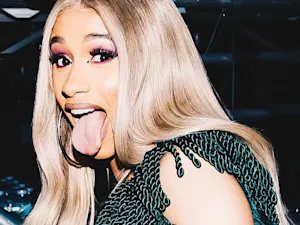
The Hidden Dangers of Diet Soda
Zero-calorie drinks, like diet sodas and flavored carbonated waters, are marketed as healthier alternatives to sugary beverages. They promise a way to enjoy your favorite flavors without the added guilt of extra calories. But are they as harmless as they seem? Recent studies suggest that these drinks may not be the weight loss solution or health-friendly option they're portrayed to be.
They Have Little-To-No Nutritional Value
While zero-calorie drinks may help cut out sugar, they often don't add anything of value to your diet. Many diet drinks are filled with artificial sweeteners like aspartame or sucralose, which replace sugar without adding calories. However, beyond being low-calorie, these drinks are essentially just carbonated water mixed with additives, colors, and flavors. They don't provide any vitamins, minerals, or other nutrients your body needs.
Potential Health Concerns With Artificial Sweeteners
The health concerns surrounding zero-calorie drinks don't stop at weight gain. Artificial sweeteners have been linked to a variety of potential health risks, particularly when consumed regularly. Some studies suggest that diet sodas could increase the risk of serious conditions like type 2 diabetes and heart disease. For instance, drinking just one artificially sweetened drink per day has been associated with a higher risk of developing diabetes.
In addition, there's evidence that diet sodas may negatively affect kidney function. Research shows that people who drink large amounts of diet soda are at a higher risk of developing chronic kidney disease, possibly due to phosphorus and other chemicals in these drinks.
Do Diet Drinks Help You Lose Weight?
One of the main reasons people turn to zero-calorie drinks is to lose weight. Cutting out regular soda, which is packed with empty calories, should theoretically lead to weight loss. However, the relationship between diet soda and weight management isn't as straightforward as it seems.
Some studies have shown that drinking diet sodas could actually lead to weight gain. This could be because artificial sweeteners may stimulate hunger hormones, trick your brain into craving sugary or high-calorie foods, or alter how your body responds to sweet flavors. As a result, people who drink diet soda might eat more to compensate, negating any calorie savings from their drinks.
On the flip side, other research suggests that replacing sugary drinks with diet sodas can support weight loss. This conflicting evidence highlights the complex relationship between artificial sweeteners and weight management.
Carbonation Can Also Affect Your Appetite
Surprisingly, even zero-calorie carbonated water could have hidden risks. Research has shown that carbonation can stimulate the release of ghrelin, a hormone that signals hunger to your brain. In one study, participants who drank any carbonated beverage — whether it was regular soda, diet soda, or carbonated water — experienced a spike in ghrelin levels. This suggests that even though these drinks don't contain calories, they may increase hunger and lead to overeating.
Should You Rethink Your Drink Choice?
While zero-calorie drinks can be a useful tool for reducing sugar intake, relying on them as your primary beverage may not be the healthiest choice. The lack of nutrients, combined with potential weight gain and health risks, makes these drinks a questionable alternative to sugary beverages.
If you're looking for a healthier way to stay hydrated without the risks associated with artificial sweeteners, plain water, unsweetened tea, or fruit-infused water are better options. While they may not have the fizz or flavor of soda, these natural beverages offer hydration without the potential drawbacks.
References: Zero weight loss from zero calorie drinks? Say it ain't so | Diet Soda: Good or Bad?
























